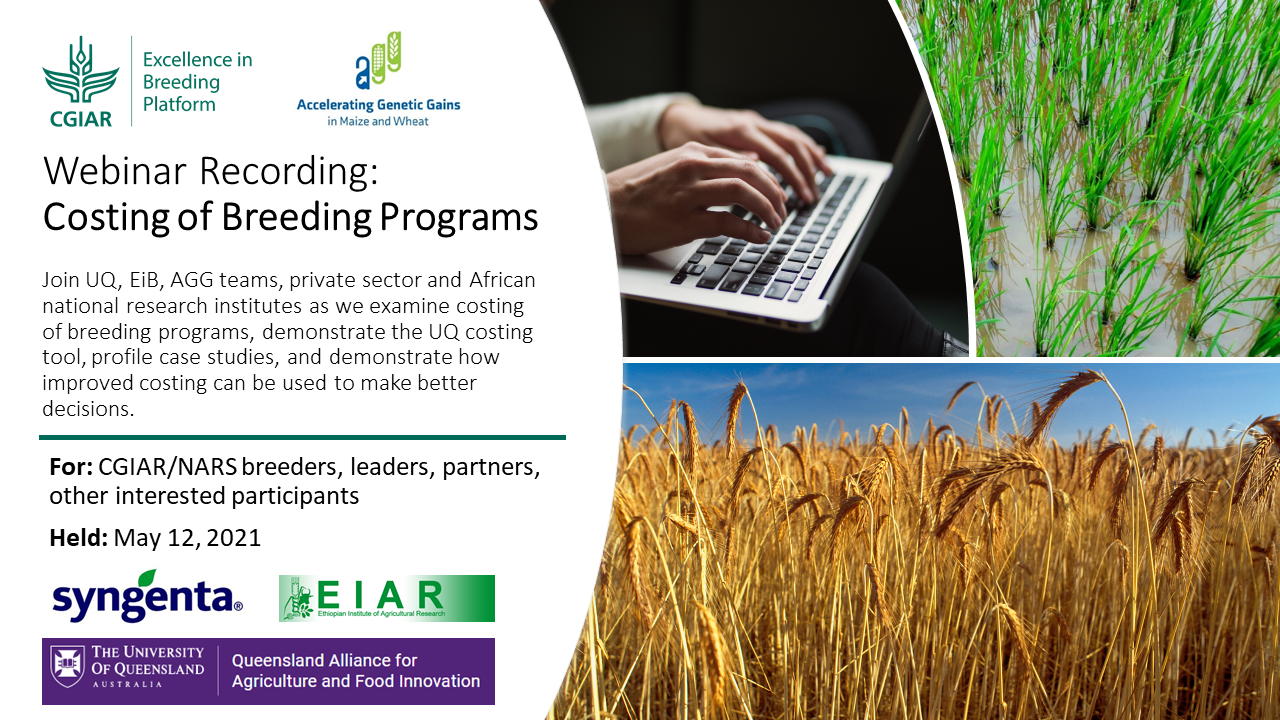
How can breeding programs estimate the costs of breeding and its associated research activities? How can breeders make better decisions about resource allocation?
Join us as we unpack and explore the UQ Breeding Costing Tool, a powerful solution for breeders and breeding managers.
Watch the webinar:
Dowload the PPT slides (PDF):
- Costing breeding pipelines using the UQ Breeding Program Costing Tool - Emma Mace, University of Queensland
- Costing of the EIAR maize program: Procedure and Implication - Lealum Amenu, Dryland Maize Breeding Lead, EIAR
- Costing of Breeding Programs: A perspective from industry - Olivier Cottet, Global Head Seeds Development Operations, Syngenta
Date held: May 12 Time: Nairobi, 10-1130am / Ibadan, 8-930am / Hyderabad, 1230-2pm / Manila, 3-430pm / Brisbane, 5-630pm
Organized for: NARS breeding programs in Africa, other interested breeders and leaders
Organized by: CGIAR Excellence in Breeding (EiB), Accelerating Genetic Gains (AGG), along with partners University of Queensland (UQ) and more
Description:
The “Breeding Costing Tool” is a powerful solution for allowing users to estimate the cost of crop breeding and its associated research activities and to help breeders make decisions about resource allocation. The costing tool is designed to calculate the cost of running a crop breeding activity, or an entire breeding pipeline, using the prices, costs and salaries from a single year. The software is freely available from the Queensland Alliance for Agriculture and Food Innovation and the University of Queensland in Australia.
Join the UQ team, the EiB and AGG teams, and users from the global private sector and African national research organizations as we introduce the tool, examine case studies and demonstrate how it can be used to make better decisions.
Tentative Agenda:
Queries: Contact EiB's Bish Das: B.DAS@cgiar.org
Explore/download the tool: EiB toolbox / UQ website
Special thanks: to EiB and AGG project funders including Bill & Melinda Gates Foundation, the UK Foreign, Commonwealth & Development Office, the United States Agency for International Development, GIZ/BMZ Germany, ACIAR Australia, the Foundation for Food and Agricultural Research (FFAR), and our presenters and partners.